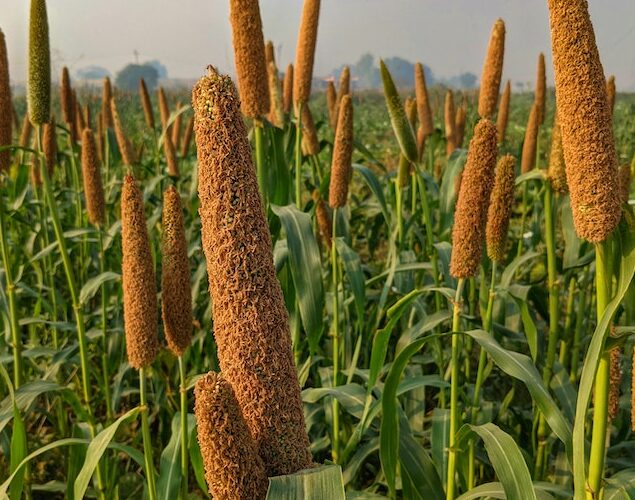To promote the use of millets in food products and encourage value addition, the Government of India launched the Production Linked Incentive Scheme for Millet-based Products (PLISMBP) for the period FY 2022-2023 to FY 2026-2027, with an outlay of Rs. 800 crore.
The scheme eliminates the threshold investment requirement, making it accessible to more applicants. To qualify for incentives, companies selected under the scheme must achieve a minimum year-on-year sales growth of 10% over the base year.
The scheme has a tenure of five years and it incentivizes sales of branded Ready-to-Eat and Ready-to-Cook products in consumer packs that contain over 15% millet by weight or volume.
Thirty beneficiaries were initially enrolled in the PLI Scheme for Millet-Based Products. Following the withdrawal of one beneficiary, there are now 29 beneficiaries.
According to the scheme guidelines, only domestically sourced agricultural products (excluding additives, flavours, and oils) must be used to prepare millet-based products. This requirement has boosted local production and procurement of agricultural produce, which has benefited farmers.
The claims regarding the first performance year (FY 2022-2023) were required to be filed in FY 2023-2024. 19 applicants submitted incentive claims, and Rs. 3.917 crore has been disbursed to the eligible applicants.
The Government has introduced several measures to enhance the implementation of the Production Linked Incentive Scheme for Millet-Based Products (PLISMBP).
These measures include the establishment of a user-friendly portal and the creation of dedicated groups for prompt issue resolution. Clarifications on scheme guidelines have been issued from time to time to facilitate easy understanding of the scheme Guidelines.
Moreover, regular monitoring and evaluation mechanisms have been instituted, and technical assistance is provided through dedicated teams to facilitate the smooth implementation of the scheme. Additionally, weekly meetings with applicants are held to ensure effective communication and progress tracking.
Apart from this scheme, the Indian government has taken several campaigns to promote Millet in India and internationally, including championing the United Nations resolution to make 2023 the International Year of Millets and promoting millet meals in global events like G20.
Though the country is the largest producer of Millet in the global market, the proportion of land devoted to its domestic cultivation is still tiny. The PLI Scheme for Millet-Based Products will apart from helping the food business, it will also spur Indian farmers to diversify their cropland and grow millet.
Want to know the importance of millet, especially from an Indian context? Read here






Add comment